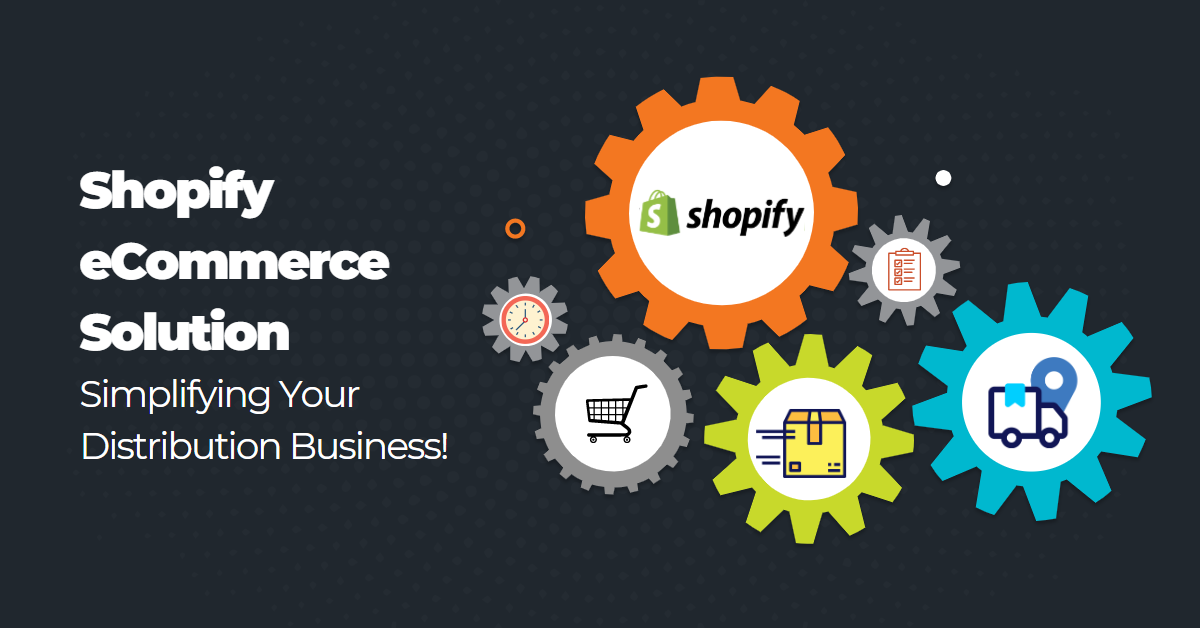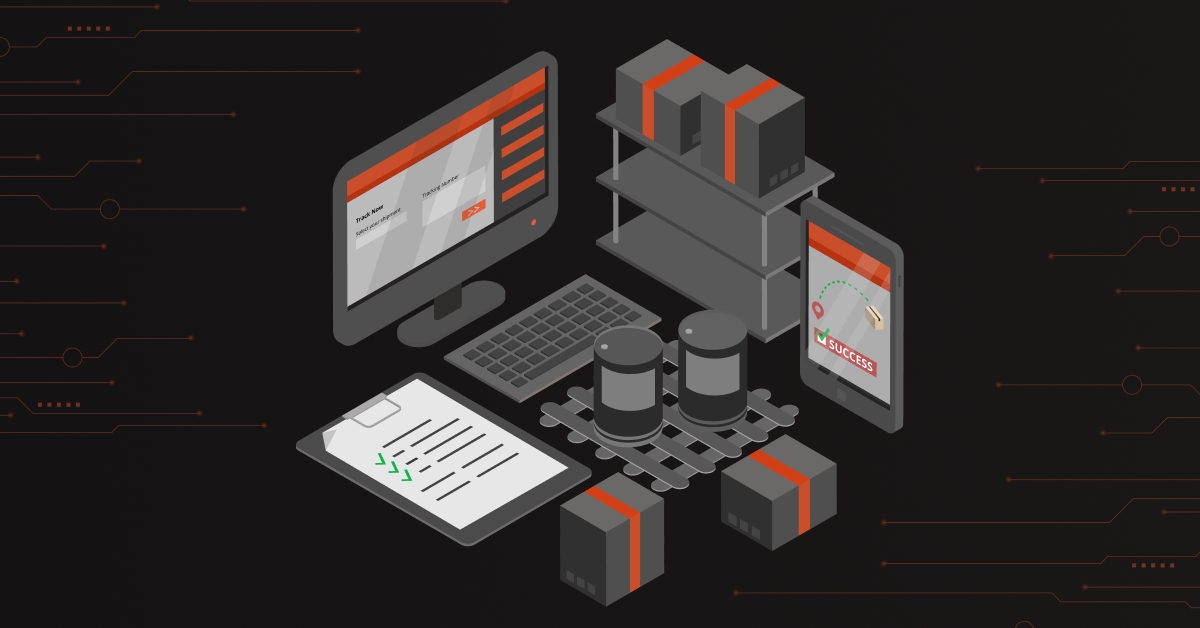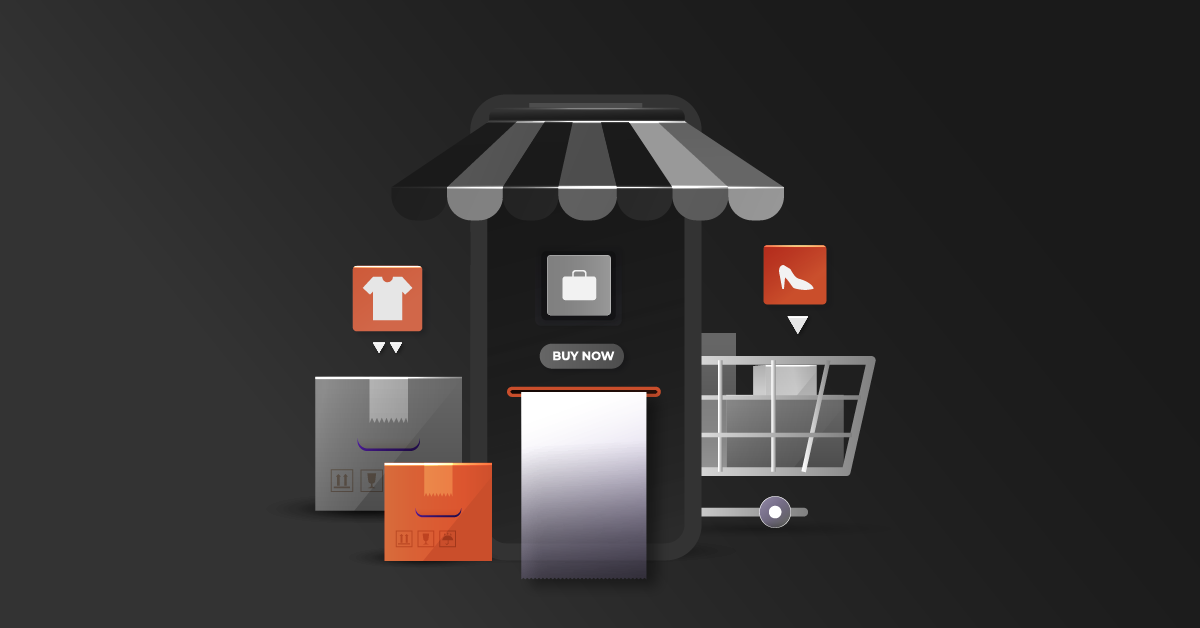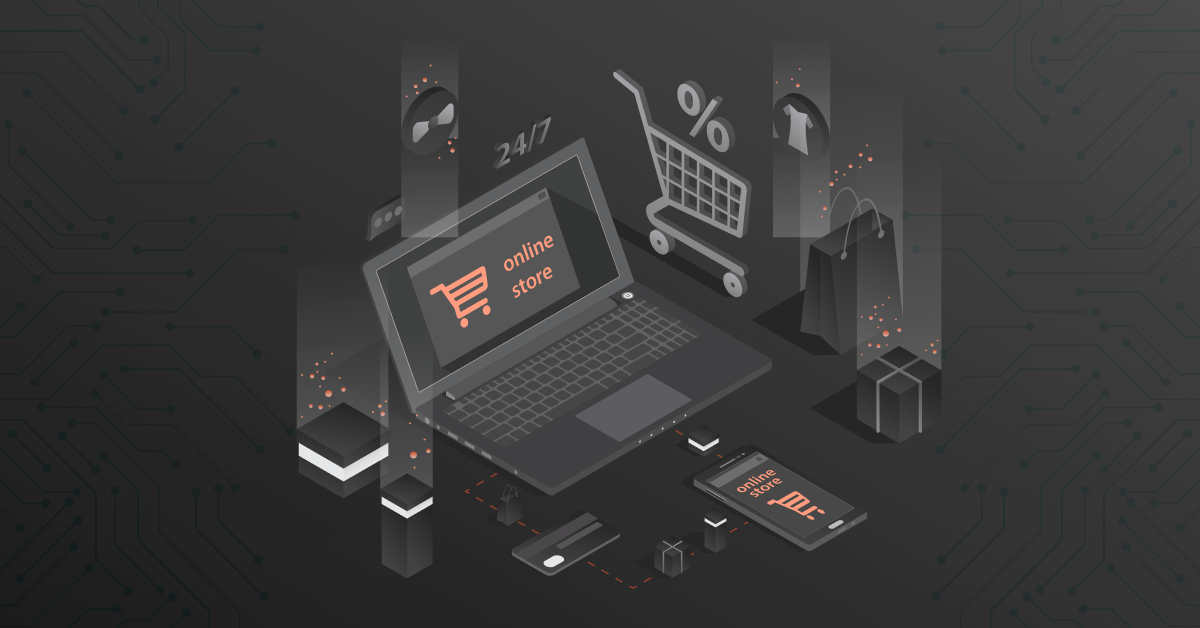One of the most important decisions you need to make as a distributor is what platform to use for your eCommerce store. eCommerce platforms like Shopify are being embraced by contemporary wholesalers in an effort to survive in a cutthroat industry. We recommend Shopify, because it’s one of the simplest and most user-friendly eCommerce platforms out there.
Shopify is used by online sellers in over 175 countries around the world, with 66% of Shopify stores estimated to be based in the US.
Of course there are a lot of eCommerce solutions out there, but none of them are quite as tailored to distribution businesses as Shopify is. Shopify has everything you need to get your distribution business online and running smoothly, from simple product management to powerful shipping tools. Plus, there are tons of add-ons and integrations available, so you can customize your shop to fit your unique needs. Also take a look at Shopify testing checklist.
Here’s a quick glimpse on how Shopify eases your distribution journey before we dive deep:
1. Shopify is designed for businesses of all sizes. Whether you’re just starting out or you’re a large enterprise, Shopify has the features you need to succeed.
2. Shopify is easy to use and scalable. You can start small and then add more features as your business grows.
3. Shopify integrates with other business software, so you can manage your inventory, accounting, and shipping from one place.
4.Shopify offers 24/7 support, so you can always get help when you need it.
5. With Shopify, you can sell online, in-person, and through social media platforms like Facebook and Instagram. So no matter how your customers want to shop, you can accommodate them.
Contents
What Shopify Can Do For Your Business?
According to Internet statistics there are 3,924,979 live websites currently powered by Shopify.
Shopify is a complete eCommerce solution that enables you to set up an online store and sell your products. It can help simplify your B2B business by giving you a central place to manage all your orders, inventory, and customers. With Shopify, you can streamline your operations and save time and money.
Shopify also has a huge app store with over 2,000 apps that can help you extend the functionality of your store. And if you need any help, their 24/7 support team is always on hand to assist you.
There’s no doubt that Shopify is one of the leading eCommerce platforms available today. If you’re looking for a platform that can help you simplify your distribution business, then Shopify is definitely worth considering.
In addition to providing a central place to manage orders, inventory, and customers, Shopify also offers a host of features and tools to help businesses streamline their operations, including:
– Automatic inventory management
– Order tracking and management
– Customer management
– Reporting and analytics
– Secure payments
– And more!
So, with Shopify, you can focus on running your business, not on managing the technical details of your ecommerce operation.
How Shopify Simplifies Your Distribution Business?
Shopify is not just an eCommerce solution that helps you sell products online; It allows you to grow your business. It’s easy to use, scalable, and provides all the features you need to run a successful distribution business. If you’re in the business of distributing goods, you know that there are a lot of moving parts – and a lot of potential for things to go wrong. You need to be able to track inventory, manage orders, and fulfill shipments quickly and efficiently. That’s where Shopify comes in.
Shopify is the leading eCommerce platform, and for good reason.With Shopify, you can manage your inventory, process orders, and ship products with ease. Plus, our built-in fraud protection ensures that your transactions are safe and secure.
Read More: How Can Wholesale Distributors Differentiate their Businesses in the Age of Amazon?
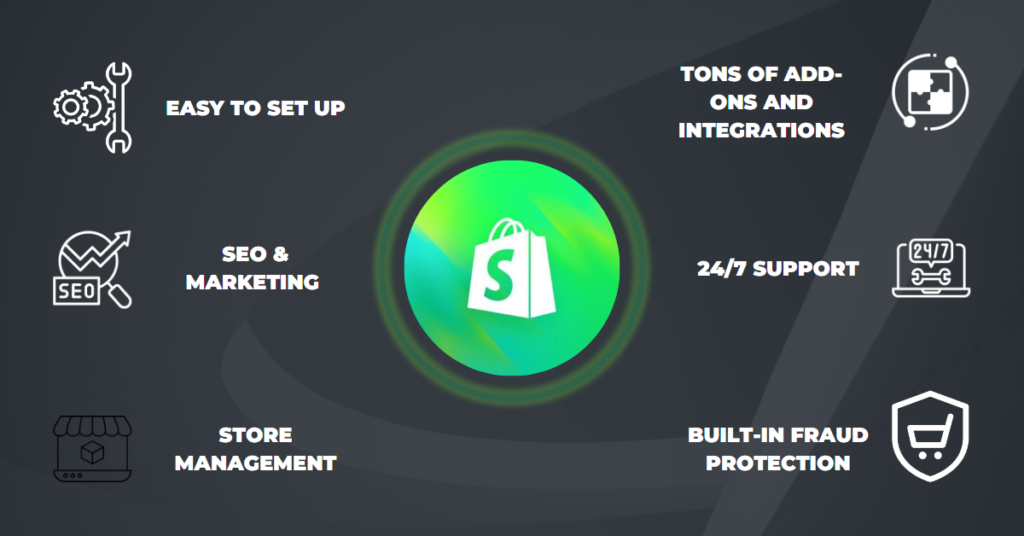
Here are some reasons why you should use Shopify for B2B distribution to grow your business faster:
Strong Brand Image: If you run your business online, you will have a chance to build a stronger brand image. You can design your online store in the way you want and develop a unique brand identity for your business with the help of Shopify. Moreover, users can set up unique domains for the storefronts of their wholesale channels on Shopify, which helps them build their brands.
Customer dashboard: Compared to online retail clients, wholesale customers need to be more connected and informed about their shipments and items. To faciltate advanced up to date information, offers specialised customer dashboards that provide customers with all the important details about their orders. Customers of Shopify Wholesale may use the customer dashboard tool to check their orders, pay for them, reorder items, and do a lot more.
Easy Customer Acquisition: With Shopify, you can start selling your products online and grow your business faster. You don’t have to approach distributors or wholesalers to sell your products; you can sell them directly to customers.
Automated Updates: The Shopify Wholesale solution simplifies the procedure for notifying clients of any changes to their orders or payments. Users have access to a consolidated client order page that lists all pertinent data, such as transaction and purchase histories, among other things. Users of Shopify for your wholesale business helps you notify clients of any modifications via automated emails and messages sent from the customer purchase page.
Save Time & Money: If you want to grow your business faster, you need to save time and money. There are many e-commerce solutions available in the market, but Shopify is one of the best e-commerce solutions that will let you save time and money.
Inventory management: With Shopify, you can easily keep track of your inventory levels and reorder products when necessary. This can save you a lot of time and hassle when it comes to keeping your shelves stocked.
Order processing: Shopify makes it easy to process orders quickly and efficiently. This means less time spent on paperwork and more time spent on growing your business.
Financial tracking: Shopify can help you track your finances and see where your money is going. This information can be invaluable when it comes to making strategic decisions about your business.
Product management: With Shopify, adding new products to your inventory is quick and easy. You can also keep track of your stock levels and manage your products from one central location.
Personalized Pricing: Unlike other platforms, Shopify provides Wholesale Customers with a range of customizable price choices that customers may configure in accordance with their requirements and plans. For each item posted on their shop, users may select flexible rates that are available to wholesale buyers. Additionally, Shopify has a tool that enables customers to set a minimum and maximum order quantity for specific products. These functions assist companies in running their operations efficiently without sacrificing margins and earnings.
Shipping: Wholesale distributor are expected to meet similar needs as customers have grown accustomed to online shopping experiences created by Amazon and other ecommerce marketplaces/webstores. One of those expectations is a quick response on shipment. Wholesalers run the danger of losing clients due to lengthy, error-prone fulfilment procedures, while retailers run the risk of being fined for missing deadlines. Shopify comes with built-in shipping tools that make it easy to get your products to your customers, no matter where they are in the world. You can also use Shopify’s shipping rates to offer free or flat-rate shipping to your customers.
Scalability: As your business grows, Shopify grows with you. It includes a tonne of features that are already there and are designed to help with this kind of business expansion. You may easily connect your offline store to your online business using the Point of Sale (POS) functionality.
Additionally, Shopify Plus merchants may manage several stores on an organizational level thanks to the Organization Management function. Many software are also readily available to aid in the expansion of a franchise company model.
Third-Party Integration: Shopify is widely renowned for its extensive app store and straightforward platform connectivity. Giving a third-party app access to a Shopify e-data store in order to add that app’s particular capabilities to the platform’s default features is known as “Shopify integration.” This makes it possible for Shopify and integrable software to collaborate.
The integration sassists with things like:
- Consumer assistance
- promotions and marketing
- inventory management
- Orders management for wholesale and B2B clients
Payment Option: As a business-to-business (B2B) company, you know that the process of accepting payments can be complicated. You likely have to deal with different payment types, invoicing, and accounting software. Shopify can help simplify your B2B business by providing a comprehensive payment solution that will help you speed up the checkout process. With Shopify, you can easily accept all major credit cards, PayPal, Apple Pay, and more. Plus, Shopify integrates with popular accounting software like QuickBooks, so you can automate your financial operations.
Moreover, by decreasing the amount of required fields from around sixteen to just two, Shopify significantly helps to lower the friction related to checkout. This ease of checkout process attempts to boost conversions and decrease friction, which is a very smart move for optimizing the mobile buying process.
Omnichannel Support: With Shopify, you can sell products and services to anyone, anywhere, at any time because of its robust automation and website-management tools. The many applications that are presently offered can automate a lot of the processes in your Shopify business. There are plugins for managing inventories, tracking profit margins, backing up data, and many other things.
Shopify has a large community of B2B application suppliers for all kinds of business models and devices because of its popularity. Retailers can immediately control their online storefronts from their smartphones by setting up in any corner of the world.
Marketing Support Tools: Another persuasive reason that makes it appealing to use Shopify for B2B is its diverse marketing methods. The Shopify eCommerce platform provides merchants with tons of powerful tools for effectively promoting a B2B online store.
Specifically, there is now a dedicated marketing section on the Shopify dashboard to support various marketing activities. You can use this tool to build and monitor advertising campaigns on sites like Facebook and Google, providing access to millions of potential customers.
Moreover, Shopify is built with the essential SEO elements that online retailers require. Structure, on-page optimization, and other ranking elements needed for Shopify are all addressed by best practices SEO.
Recommended Reading: Is Lack Of Innovation Bringing A Growth Gap in Your Distribution Business?

Make Your Digital Transition Easy With Shopify
If you’re looking for a way to simplify your B2B operation, look no further than Shopify. With its powerful tools and streamlined interface, Shopify can help take your business to the next level.
In today’s digital world, businesses need ECC eCommerce solutions that are not only user-friendly but also highly functional. Shopify is an all-in-one eCommerce platform that allows users to sell their products online in an easy and convenient way. Additionally, Shopify is a great choice for businesses with limited technical knowledge as it requires no coding skills to set up a store.
At DCKAP, our experts help you give you the ecommerce site you want and the digital shopping experience your customers deserve. For users wanting to leverage their Shopify store, DCKAP Integrator offers a great means of syncing the store with ERPs such as Epicor’s Prophet 21 and Eclipse ERPs, NetSuite, CRMs, PIM, EDI and more.

